
Contents




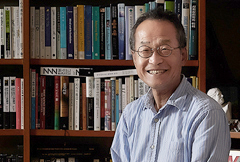
Consilience
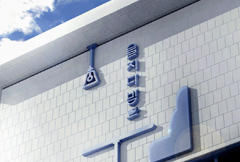
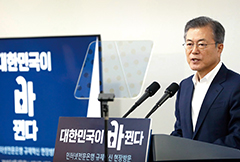




President Moon Strivesfor Innovative Growth ThroughInvestments, Deregulation
“Creative private sector ideas and technologies should be allowed to leap over regulatory barriers and inject vitality into the economy. To make this happen, I want necessary measures to be rapidly implemented in order to create an innovation-friendly economic environment,” said President Moon Jae-in in a meeting with his top aides on Aug. 6.
Written by Sohn Ji-ae Photos courtesy of Cheong Wa Dae
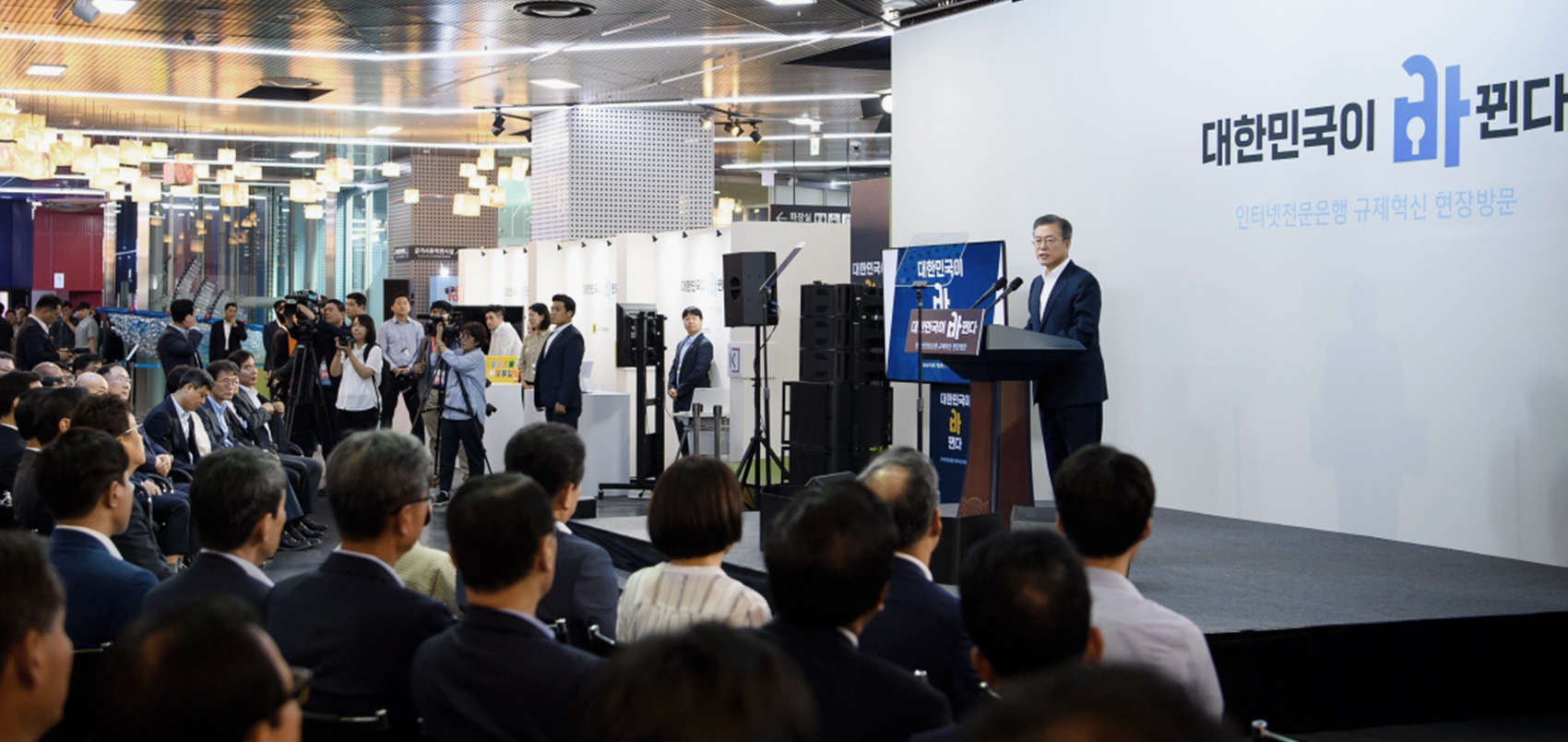 President Moon Jae-in talks about online-only financial companies, at Seoul City Hall on Aug. 7.
President Moon Jae-in talks about online-only financial companies, at Seoul City Hall on Aug. 7.As the fourth industrial revolution takes place around us, a growing number of new industries armed with highlyadvanced technologies are entering into the mainstream and serving as new engines of economic growth that can boost a country’s economy, both at home and abroad. After the past few months focusing on inter-Korean ties and diplomatic missions, President Moon Jae-in and his administration are now beginning to revitalize the sluggish domestic economy by fostering these new, futuristic industries with the aim of achieving what President Moon calls “innovative growth.” Innovative growth, one of the government’s strategies for economic growth, aims to create an innovation-friendly economic environment by investing in new technologies to help the country stay ahead of other countries and to become a key leader in these technologies that are the foundation of the fourth industrial revolution.As part of efforts to facilitate innovationled growth, the administration has pledged to invest more than KRW 5 trillion next year, a steep increase from the KRW 3 trillion invested this year, into the “platform economy”: the ecosystem and infrastructure that form the base for future industries, such as artificial intelligence (AI), blockchain and big data. Some of the investment will be made to foster key leading industries: hyperconnectivity, smart factories, 5G, smart farms, smart cities, fintech, new energy, drones, autonomous cars and biotechnology. On top of that, the administration will drastically increase its budget next year for social overhead capital (SOC) that is related to “everyday life innovation,” such as urban regeneration and housing.
 ⓒ shutterstock
ⓒ shutterstock
President Moon stressed the importance of “regulatory innovation” in order to encourage innovative growth, saying that, “Outdated and excessive regulations tamp down new industries.”
Addressing representatives from online-only financial businesses on Aug. 7, the president recognized that what he called “banks in my hand” ─ technologies that allow citizens to access their bank account and banking services at anytime and anywhere through their mobile phones ─ have brought a breath of fresh air to the entire financial sector, but that they are facing difficulties making progress in the market due to regulatory restrictions that favor existing financial business structures.Calling for regulatory reform that befits the changing landscape of the financial sector, President Moon said, “Regulatory innovation for online-only financial service companies is part of the process to allow innovation while firmly abiding by the basic principle of separation between banking and commerce. Regulatory innovation for internet-only banks will be like opening a reservoir onto parched fields. Deregulation of online banking could lead to innovative growth in the financial sector and new industries, which could, again, set a new course for Korea’s economic growth.”
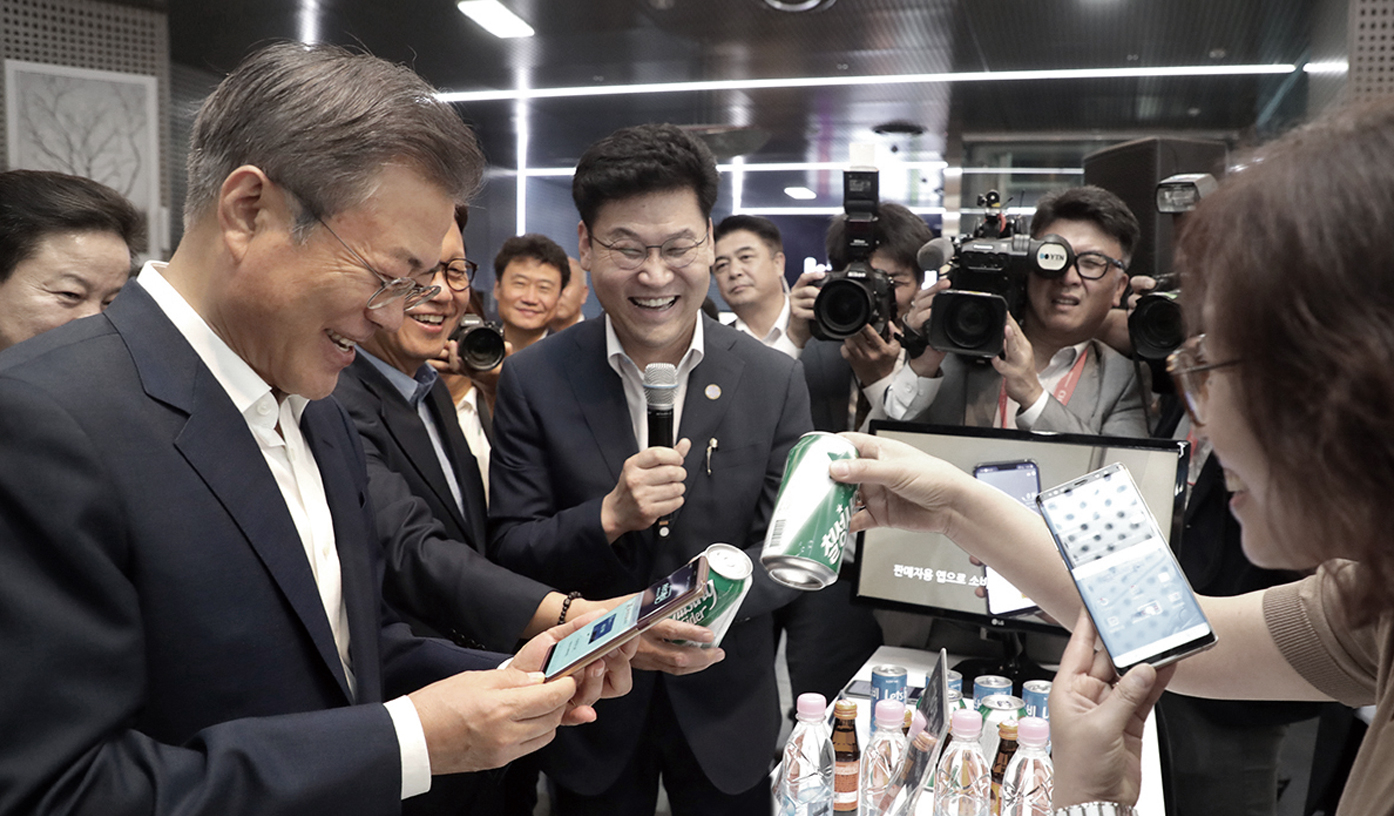 President Moon Jae-in tries out QR code shopping during an event to promote online banks at Seoul City Hall on Aug. 7.
President Moon Jae-in tries out QR code shopping during an event to promote online banks at Seoul City Hall on Aug. 7.It’s true that new industries are pouring into the market, but the regulatory system still remains outdated, hindering growth. If this status quo continues, there will be no way for new players to play a role in driving the national economy, which, as a result, would lead to Korea lagging behind other economies on the global stage.In this sense, it’s a positive sign that the government is taking new approaches to change the economic environment. Amid the stagnant economy that faces the nation, which has forced the Bank of Korea on July 26 to revise downward its growth forecast for the year from 3 percent to 2.9 percent, wisely supporting new sources of future economic growth with more investments and deregulation would help the economy emerge from the current downturn and create an environment where the country could lead this digital competition.President Moon has vowed that he will preside over monthly meetings himself to review efforts to cut red tape and deregulation, a factor that many critics say will make or break the innovative growth policy. The government’s active engagement and action, not just words, will be crucial in making this happen.
Other Articles





Consilience





Application of subscription
Sign upReaders’ Comments
GoThe event winners
Go


 September 2018
September 2018


